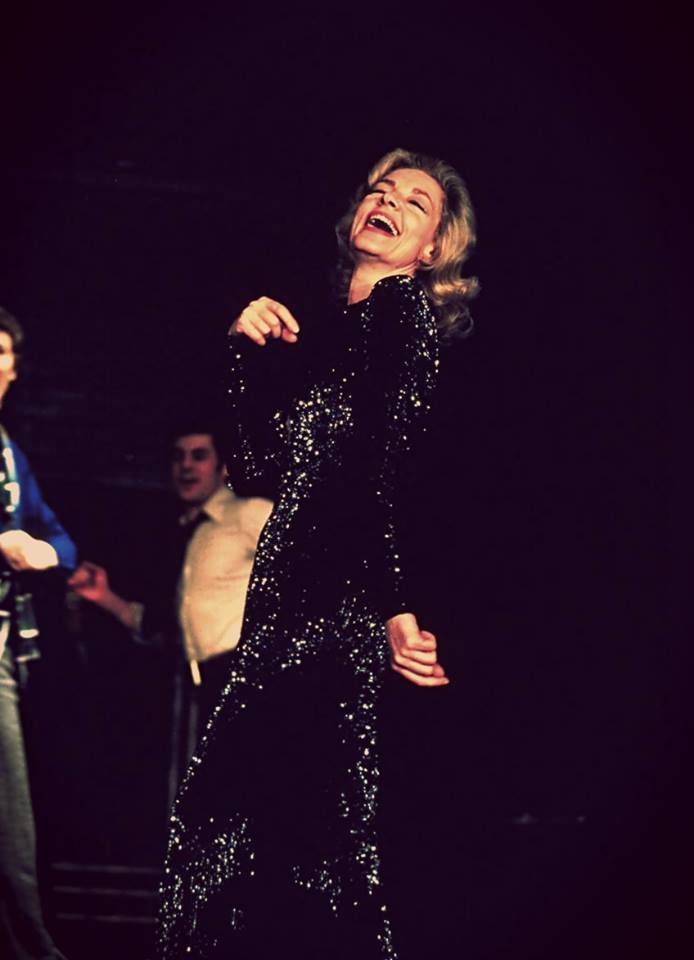Remembering Applause
Imagine setting out to write a musical based on one of the most celebrated screenplays of all time, only to find that you cannot secure permission to use it, but you can get the rights to write a musical based on the short story that that screenplay was based on. Are you confused yet? This is essentially what happened when Sidney Michaels (book), Charles Strouse (music) and Lee Adams (lyrics) encountered when writing the musical Applause. Applause is based on the 1946 Mary Orr short story “The Wisdom of Eve”, which was, of course, the basis for the 1950 20th Century Fox film and Academy Award winning Best Picture All About Eve.
Joseph L. Mankiewicz penned the Oscar-winning screenplay for All About Eve, an achievement that has been revered as arguably the wittiest and most intellectual screenplay ever, and certainly the crowning achievement to conclude the two-decades that are considered the “Golden Age of Hollywood.” The problem was, 20th Century Fox refused to release the rights to the film, its screenplay, or its title. Thus, a musical based on “The Wisdom of Eve” couldn’t be called All About Eve, include Mankiewicz’s poetic and biting words, nor could it include any of the additional characters that he added to Orr’s story. Thus, the stage musical of Applause was missing certain elements that audiences loved in the iconic film.
“The Wisdom of Eve”, of course, is the story of theatre star Margo Channing, an actress “of a certain age” who is at the height of her career, but worried about how time and age will bring her stardom to a close. She befriends a mousy fan named Eve Harrington, who studies Margo and reveals herself as a mentally unstable imposter who eventually usurps Margo’s career and her life. Sidney Michaels struggled adapting the piece for the stage and the producers and composing team ultimately replaced him with Betty Comden and Adolph Green. Comden and Green’s efforts hardly add up to the greatest adaptation for the musical stage, but Applause has a book that is a serviceable representation of a story that had already been told much, much better. In the end, they did the best that they could considering they were always going to be standing in the shadow of All About Eve.
When the short story was made into the film All About Eve, Bette Davis triumphed in the role of Margo Channing, playing opposite an equal force in the Eve Harrington of Anne Baxter. The other standout performance in the film was George Sanders who won an Academy Award for Best Supporting Actor playing the manipulative, venomous, theatre columnist and critic Addison Dewitt. Dewitt plays such an important role in the twists and turns of the movie, the puppet master who orchestrates Eve’s ascension, it is an unfortunate reality that the character was a Mankiewicz creation and could not be included in the stage musical. Gone was one of the most compelling characters that people loved and remembered from the film. In the end, Applause is arguably most damaged by his absence, something the authors had absolutely no control over.
When the musical was preparing to open, 20th Century Fox reversed its decision and allowed the authors to draw from the film script. The gesture was too little too late, however, as the musical was already too far along to incorporate much of it. Strouse and Adams did manage to create a song around the iconic line “Fasten your seatbelts, it’s going to be a bumpy night” but that was a last-minute addition. Applause would have to open on its own merits.
Bette Davis was an indelible Margo Channing, and whoever was going to play the role on the stage needed to exude a star quality of that magnitude. The stage Margo was found in the person of Lauren Bacall, once a star of Hollywood’s Golden Age and who, in recent years, had been seeing her light fade as she aged out of the roles that once made her one of Hollywood’s sexiest leading ladies. The parallels between her career and life’s direction and those of Margo Channing’s were similar, and Bacall identified perfectly with her character to the tune of a Best Actress Tony Award. Penny Fuller played Eve Harrington, and the rest of the cast was rounded out with Len Cariou, Robert Mandan, Brandon Maggart, Ann Williams, Nicholas Dante, Lee Roy Reams, and Bonnie Franklin.
Applause opened at Broadway’s Palace Theatre on March 30, 1970 under the direction of Ron Field, who also choreographed. Playing 896 performances, the musical was nominated for eleven Tony Awards, winning for Best Musical, Best Actress, Best Direction, and Best Choreography. Highlights of the show included “But Alive”, sung in a Greenwich Village gay bar (a milestone for the times) and the show’s title song that celebrated the musicals that were hot items on Broadway.
Applause has an infectious score, but for some, a problematic one. In style, it feels tethered to the late 1960s/early 1970s, both musically and lyrically. For myself, personally, this is not a problem, since it still effectively tells the story while establishing time and place. It just happens to be of a period where musical theatre scores had a very distinct sound (Promises, Promises and Company come to mind), but somehow Applause has been labeled “unrevivable”, at least without alterations and updates. Have we grown so far away from willing suspension of disbelief that we cannot allow our ears and our minds to go there? Have a listen to Applause; such numbers as “But Alive”, “Who’s That Girl?”, “She’s No Longer a Gypsy”, “Something Greater” and particularly “Welcome to the Theatre” are guaranteed to resonate with their wit and perfectly crafted musical theatre storytelling. Since Applause remains one of the few Best Musical winners yet to be revived on Broadway, I think it is time for us to give it another look.








